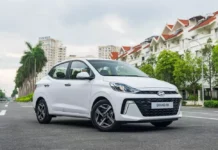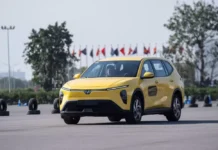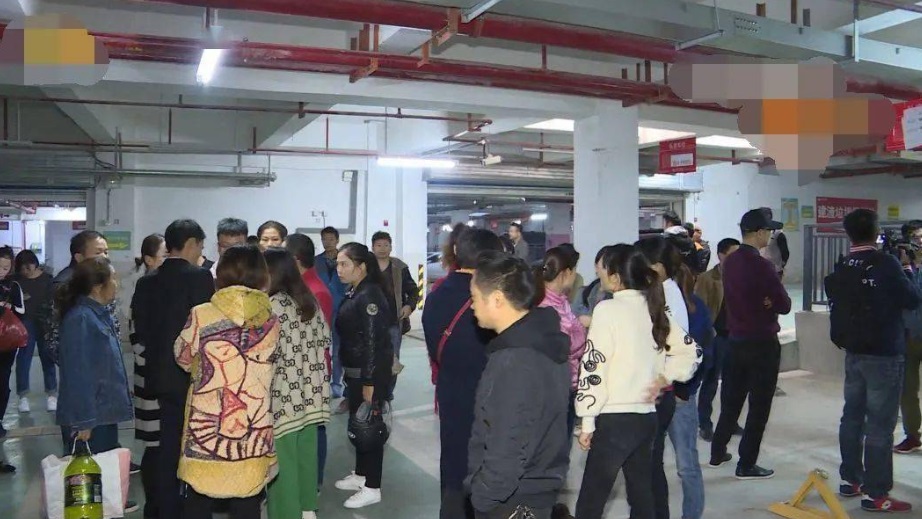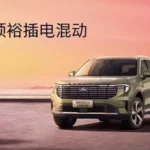A dispute over parking spaces in a Chinese apartment complex has recently sparked a wave of controversy on social media.
A few years ago, after thorough research, Ms. Duong (China) decided to purchase an apartment in a new complex. While preparing the necessary paperwork for her new home, she stumbled upon a unique business opportunity.
At that time, the transportation infrastructure around her apartment building was still underdeveloped, and residents could easily park their cars for free on the street. This led to most residents being reluctant to spend money on purchasing a parking space in the basement from the developer, even though the price was reasonable, ranging from 50,000 to 60,000 CNY (175 to 210 million VND).
However, as the complex neared completion and more residents moved in, the need for parking spaces became crucial. Seizing the opportunity, Ms. Duong negotiated with the developer to buy the remaining vacant parking spaces with the intention of reselling them at a profit.
After finalizing the legal procedures, she purchased 196 parking spaces for approximately 1 million CNY (equivalent to 3.5 billion VND). Her prediction proved correct, as after the complex was completed, the surrounding commercial areas thrived, and residents could no longer rely on free street parking and had to resort to using the basement parking.
However, by then, they realized that all the parking spaces had been bought by Ms. Duong, who was now reselling them at double the original price, 100,000 CNY (350 million VND) each. She was adamant about selling and refused to rent them out.
The residents of the complex attempted to negotiate with Ms. Duong multiple times, hoping to buy the parking spaces at the original price, but she remained firm on her asking price of 100,000 CNY (350 million VND). Frustrated and angered, several families banded together, creating pressure and even resorting to insults and accusations, claiming that the management committee was colluding with Ms. Duong for their own gain.
However, the management committee defended their actions, stating that they had made public announcements before the sale, giving residents the opportunity to purchase the parking spaces. Since there were no takers at that time, the sale to Ms. Duong was legal and transparent.
According to Article 276 of the Chinese Civil Code, as cited by NetEase 163, parking spaces in residential complexes should first meet the needs of the residents. However, if public notices are given and residents do not purchase them, the developer has the right to sell them to other individuals. Therefore, according to the law, Ms. Duong’s actions were not deemed unlawful.
Ms. Duong is within her rights to use, commercialize, and transfer ownership of the parking spaces, which are considered her personal property. The pricing is subject to market demand, and as long as the prices are reasonable, it is a legitimate business venture.
TH (Tuoitrethudo)
The Electric Car Tax Policy: China Fights Back.
The Chinese Ministry of Commerce has recently filed a complaint with the World Trade Organization (WTO), challenging the European Union’s (EU) anti-subsidy measures on Chinese-made electric vehicles. This move by China is an assertive step to protect its domestic electric vehicle industry and ensure its global competitiveness. The complaint alleges that the EU’s actions are inconsistent with WTO rules and may negatively impact the growth of this innovative and environmentally friendly sector. With this challenge, China seeks to uphold fair trade practices and promote the sustainable development of the electric vehicle industry, not just domestically but on a global scale.
Ford Equator – “Big Brother” to the Territory, Gets a 2025 Makeover in China with Impressive Changes
The 2025 Ford Equator SUV will offer an impressive all-electric range of 110 km in its plug-in hybrid version, and it doesn’t stop there. This innovative vehicle also allows you to power your outdoor adventures or even your home appliances with its ability to provide electricity to external devices via its battery.
VinFast VF 8 Conquers Tibet: ‘Proud to be the First Vietnamese Electric Car Convoy in China’
The four VinFast VF 8s braved the challenging conditions of minus 5-degree weather and altitudes over 5,200 meters during their ambitious journey to Everest Base Camp. The team proudly recounted how their presence, a fleet of Vietnamese electric vehicles, impressed many Chinese individuals who were astonished to see them conquer such a formidable environment.
The Rise of Chinese Automakers: Are German Car Brands Falling Behind in the World’s Largest Market?
Chinese consumers are shifting their preferences from German automobiles to local brands, which spells trouble for the likes of VW, Porsche, BMW, and Mercedes-Benz. This shift has resulted in a significant decline in sales for these German automotive giants in the massive Chinese market during the third quarter, and there’s no guarantee of a swift recovery.














































